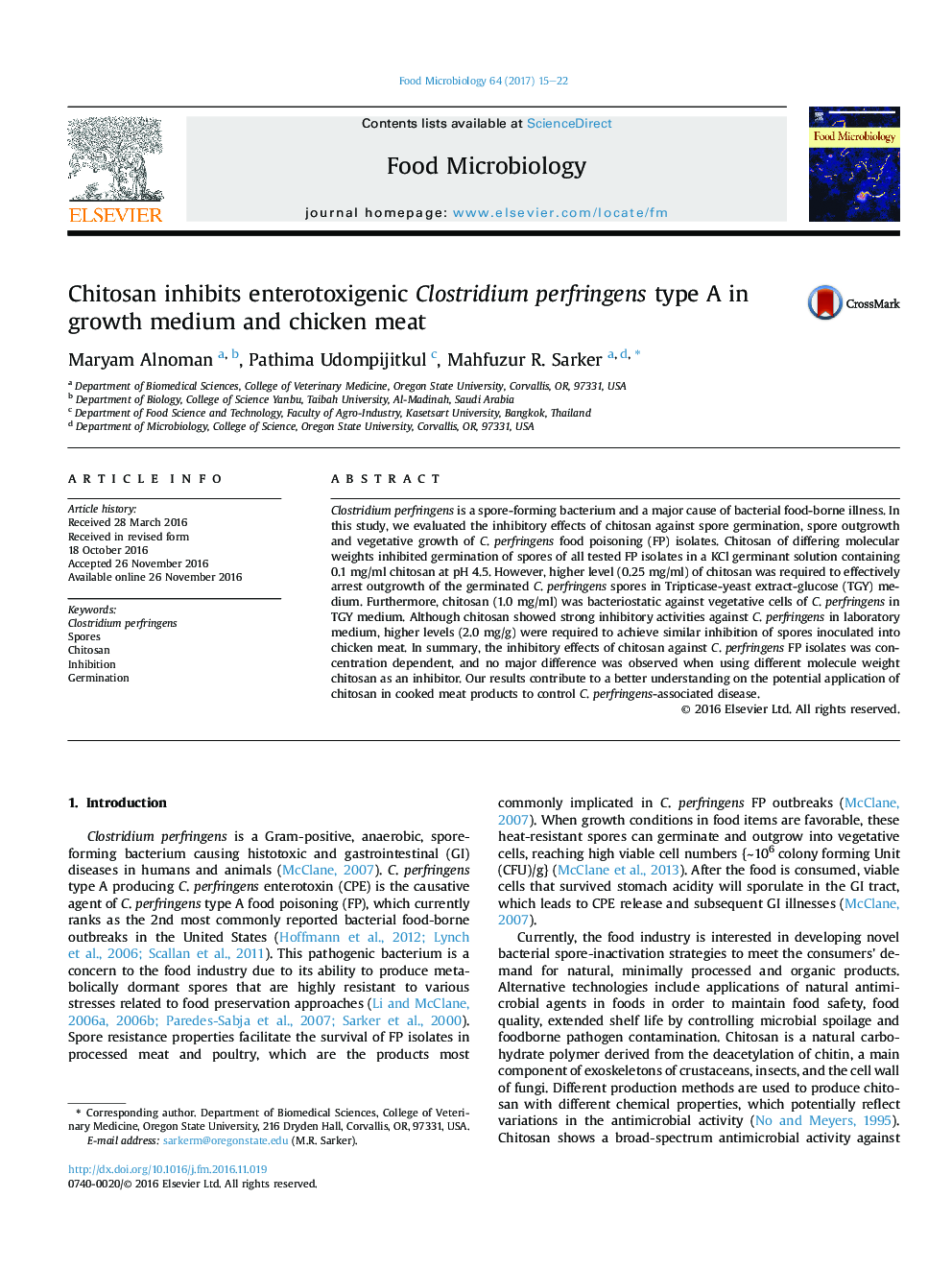| Article ID | Journal | Published Year | Pages | File Type |
|---|---|---|---|---|
| 5740204 | Food Microbiology | 2017 | 8 Pages |
â¢0.1 mg/ml chitosan (pH 4.5) inhibited Clostridium perfringens spores germination.â¢0.25 mg/ml chitosan arrested C. perfringens spore outgrowth in rich medium.â¢Chitosan has a bacteriostatic activity against vegetative cells of C. perfringens.â¢Higher level of chitosan is required to control C. perfringens in cooked chicken.
Clostridium perfringens is a spore-forming bacterium and a major cause of bacterial food-borne illness. In this study, we evaluated the inhibitory effects of chitosan against spore germination, spore outgrowth and vegetative growth of C. perfringens food poisoning (FP) isolates. Chitosan of differing molecular weights inhibited germination of spores of all tested FP isolates in a KCl germinant solution containing 0.1Â mg/ml chitosan at pH 4.5. However, higher level (0.25Â mg/ml) of chitosan was required to effectively arrest outgrowth of the germinated C. perfringens spores in Tripticase-yeast extract-glucose (TGY) medium. Furthermore, chitosan (1.0Â mg/ml) was bacteriostatic against vegetative cells of C. perfringens in TGY medium. Although chitosan showed strong inhibitory activities against C. perfringens in laboratory medium, higher levels (2.0Â mg/g) were required to achieve similar inhibition of spores inoculated into chicken meat. In summary, the inhibitory effects of chitosan against C. perfringens FP isolates was concentration dependent, and no major difference was observed when using different molecule weight chitosan as an inhibitor. Our results contribute to a better understanding on the potential application of chitosan in cooked meat products to control C. perfringens-associated disease.
